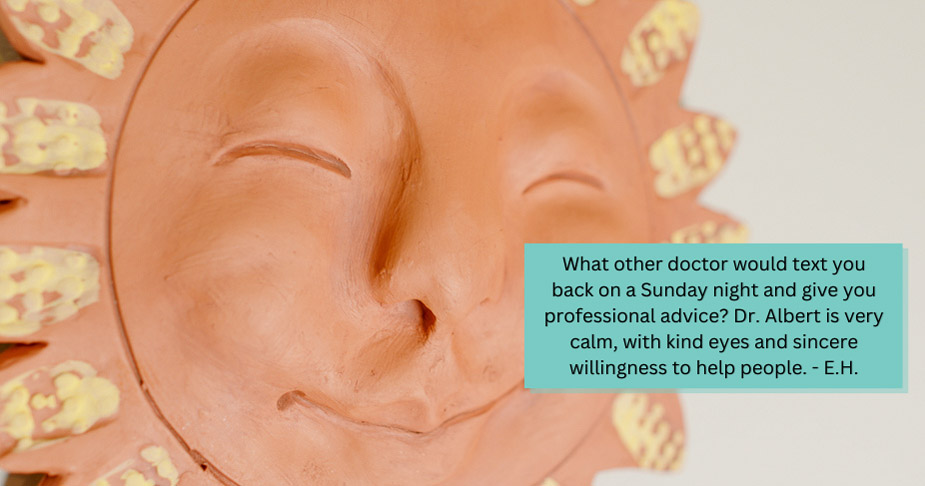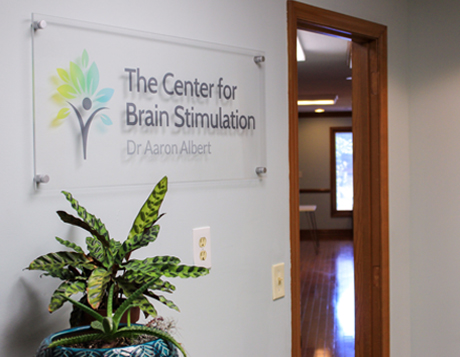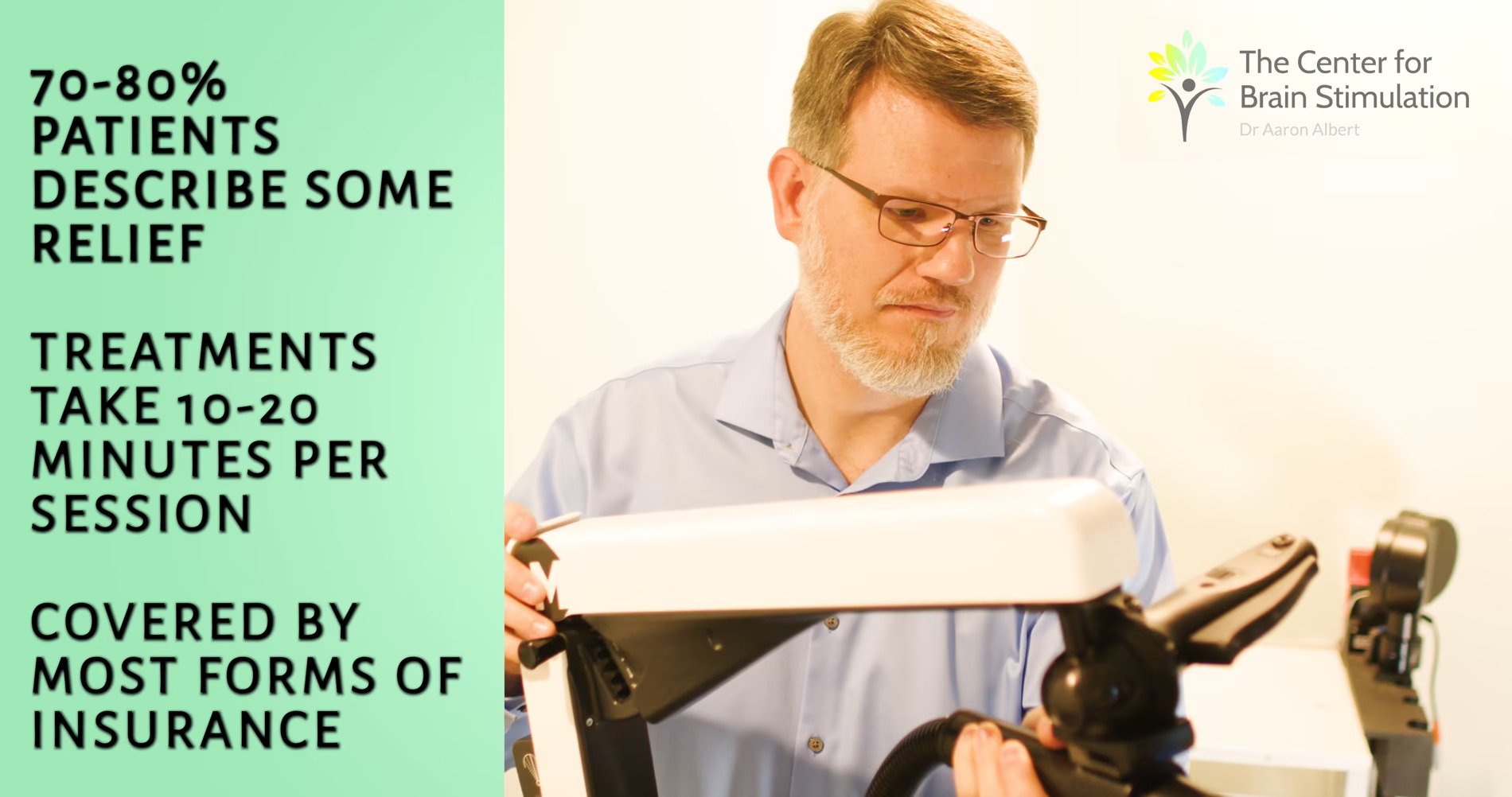- Need Help?
- (910) 294-0410
SPRAVATO® for Treatment-Resistant Depression (TRD).
SPRAVATO® for Treatment-Resistant Depression (TRD).
SPRAVATO® for Treatment-Resistant Depression (TRD).
Welcome to The Center for Brain StimulatioN
The Center for Brain Stimulation is a medical treatment center that focuses on treating severe depression, OCD, anxiety, and other clinically diagnosed neurological or mental health related conditions.
We provide compassionate, comprehensive and advanced care for our patients using state-of-the art equipment. Our expertly trained physicians and medical team stay by our patients’ side through each treatment providing support and ensuring patient comfort.
GET YOUR LIFE BACK
Breakthrough Depression Treatment


You’ve tried everything to get your depres-sion under control and nothing has worked. It’s easy to feel like it’s your fault.
But the truth is that you just haven’t found the right treatment yet. Dr. Albert’s passion is helping people with depression find relief. His years of experience working with severely depressed patients led him to pursue additional training in a revolutionary treatment called Transcranial Magnetic Stimulation (TMS).
Revolutionary Technology
Find relief from
Depression I Obsessive - Compulsive Disorder I Anxiety I Neurological Conditions
Over 175,000 patients received TMS Therapy safely in the United States, and more than 6.4 million treatments have been performed.
Highlights and Benefits

Insurance Coverage
TMS treatment is generally covered by most major insurance plans after antidepressant medication and therapy.

No medications required
Can work cooperatively with other treatment techniques such as medications and mental health therapy.

Non-invasive procedure
You remain awake and alert through each treatment. Once your session ends, you can return to your usual activities and routines.

Effective with long lasting
Efficacy rate of repetitive TMS is approximately 50-60%. One-third of these individuals experience full remission.

It can save
lives
In the case of severe or treatment-resistant depression, TMS is a treatment with life-saving potential.

Insurance Coverage
TMS treatment is generally covered by most major insurance plans after antidepressant medication and therapy.

No medications required
Can work cooperatively with other treatment techniques such as medications and mental health therapy.

Non-invasive procedure
You remain awake and alert through each treatment. Once your session ends, you can return to your usual activities and routines.

Effective with long lasting
Efficacy rate of repetitive TMS is approximately 50-60%. One-third of these individuals experience full remission.

It can save
lives
In the case of severe or treatment-resistant depression, TMS is a treatment with life-saving potential.
Is TMS therapy right for me?
Transcranial magnetic stimulation (TMS) represents an exciting revolutionary option for the treatment of multiple brain health conditions, for depression, OCD and anxiety.

WHAT OUR PATIENTS HAVE TO SAY
Our Patients Experiences

My daughter has been seeing Dr Albert for several years, and he has helped her in many ways. He is easy to get in touch with and is willing to do whatever it takes to be sure that his patients are well taken care of. If there’s an urgent matter he always responds quickly. We feel very lucky to have found him and we highly recommend him to others.

Laurie B

I came to Dr. Albert’s practice after my previous psychiatrist of 22 years retired. I was terrified of change but Dr. Albert has an incredibly calming demeanor. I feel I have made significant progress.

S.L.

I have been seeing Dr Albert for a couple of years now He is very caring and listens to you. I always feel very comfortable with him. He has a lot of knowledge. Last year I tried TMS . It. Was the best decision I have ever made. I would like to thank you for the difference that you made in my life.

Brian C

Dr Albert is an exceptional psychiatrist. Rather than seeing patients as a quick paycheck and handing out prescriptions left and right like some do. Instead he listens and is compass-ionately interested in finding a solution that fits and works for the patient rather than ass-uming or predicting some off the wall diagnosis.

Josh J

We hold Dr Albert in the highest regard. He is caring and has the ability to guide and help people to a successful way of life even though you have a MH diagnosis. His dedication is above and beyond and truly sets him above any of the Psych providers here on the Coast.

Fellow Physician

Dr. Albert is the best psychiatrist I’ve seen and I’ve seen a lot! He takes the time necessary to hear you and is honest and straightforward about how he can help.

Russle E

Have received both Zoom and in the office appointments. Very satisfied with all aspects of care and TMS treatments. I highly recommend Dr Albert.

Debra D

Dr. Albert is a kind and caring person whose style immediately relaxes you. He’s very easy to talk to and he genuinely wants to get to know you in order to help.

